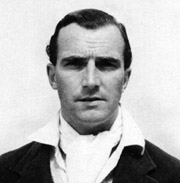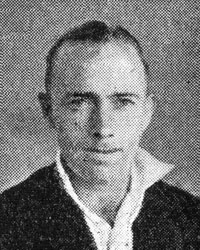
Kenneth Cranston was an English amateur cricketer, who played first-class cricket for Lancashire and eight times for England, in 1947 and 1948. He retired from playing cricket to concentrate on his career as a dentist.

Derek Shackleton was a Hampshire and England bowler. He took over 100 wickets in 20 consecutive seasons of first-class cricket, but only played in seven Tests for England. As of 2007, he has the seventh-highest tally of first-class wickets, and the most first-class wickets of any player who began his career after World War II. He holds the record for the most first-class wickets taken by any Hampshire player.
Graham Roy Dilley was an English international cricketer, whose main role was as a fast bowler. He played first-class cricket for Kent County Cricket Club and Worcestershire County Cricket Clubs, and appeared in 41 Test matches and 36 One Day International (ODIs) for the England cricket team.

Graham Anthony Richard Lock was an English cricketer, who played primarily as a left-arm spinner. He played in 49 Test matches for England taking 174 wickets.
Jack Birkenshaw, was an English cricketer, who later stood as an umpire and worked as a coach. Cricket commentator, Colin Bateman, stated "Jack Birkenshaw was the epitome of a good all-round county cricketer: a probing off-spinner who used flight and guile, a handy batsman who could grind it out or go for the slog, a dependable fielder and great competitor".

Trevor Edward Bailey was an England Test cricketer, cricket writer and broadcaster.

Frederick John Titmus was an English cricketer, whose first-class career, mostly for Middlesex with a shortish stint for Surrey, spanned five decades. He was the fourth man after W.G. Grace, Wilfred Rhodes and George Hirst to take 2,500 wickets and make 20,000 runs in first-class cricket. Although he was best known for his off-spin, he was an accomplished lower-order batsman who deserved to be called an all-rounder, even opening the batting for England on six occasions. Outside cricket, Titmus was also an able footballer; at one stage he was contracted to Watford as a professional, having earlier played for Leytonstone, and then for Chelsea as a junior.

David Arthur Allen was an English cricketer who played first-class cricket for Gloucestershire between 1953 and 1972. He also played 39 Test matches for England between 1960 and 1966.

Cecil "Sam" Cook was an English first-class cricketer who played for Gloucestershire County Cricket Club and in one Test match for the England cricket team.
James Michael Parks was an English cricketer. He played in forty-six Tests for England, between 1954 and 1968. In those Tests, Parks scored 1,962 runs with a personal best of 108 not out, and took 103 catches and made 11 stumpings.

Richard Howorth was an English cricketer who played as an all-rounder for Worcestershire County Cricket Club between 1933 and 1951. Chiefly remembered as a left-arm orthodox spin bowler, Howorth also occasionally bowled medium pace and was a capable hard-hitting left-handed batsman. Ideally he would bat in the middle of the order, but so weak was Worcestershire's batting for much of his career that Howorth would often play as an aggressive opener, and it was in this role that he hit his two highest first-class scores – curiously both being 114. Howorth was also a dependable close-to-the-wicket fielder but would field with skill further out if needed.
Donald Victor Smith was an English cricketer, who played in three Tests for England in 1957. He was born in Broadwater, Sussex, England. The cricket writer, Colin Bateman, commented that "Sri Lanka's historic first victory over England early in 1993 will have given at least one English Test player a certain amount of satisfaction. Don Smith, a steady left-handed opener capable of some useful seam bowling, became Sri Lanka's national coach in the late 1980s".
John Brian Mortimore was an English cricketer, who played in nine Tests for England from 1959 to 1964, and captained Gloucestershire between 1965 and 1967.
John Sidney Ernest Price is a former English cricketer, who played in fifteen Tests for England from 1964 to 1972.
Norman Ian Thomson was an English cricketer who played in five Tests for England in 1964 and 1965. Thomson was only weeks away from his 36th birthday when he was selected for Test duties, a recognition of his performances in county cricket.

Colin Milburn was an English cricketer, who played in nine Test matches for England, before an accident led to the loss of much of his sight and prompted his retirement.
Patrick Ian Pocock is a Welsh former cricketer, who played in 25 Test matches and one One Day International for the England cricket team between 1968 and 1985.

Philippe-Henri Edmonds is a former cricketer who represented England at international level and Middlesex at county level. After retiring he became a successful, albeit controversial, corporate executive.
M.J.K. Smith captained the English cricket team in Australia in 1965–66, playing as England in the 1965-66 Ashes series against the Australians and as the MCC in their other matches on the tour. The 5-Tests series ended in 1–1 draw. Although they failed to reclaim the Ashes this was not unexpected as the Australian press labelled them the weakest MCC team to arrive in Australia and the bookmakers were giving odds of 7/2 on their winning the series. These views rapidly changed as they set about winning their state matches with exciting, aggressive cricket and by the First Test the odds against them had been reduced to evens. Lindsay Hassett said "other teams from England may have been better technically but none had tried so hard to make the game as interesting as possible". Financially the tour's receipts were much lower than in 1962–63 due to the number of rain-affected games in a wet Australian summer and the general doldrums of the sixties.
The New Zealand cricket team toured England in the 1965 season, playing three Test matches in the first half of a damp summer. England later hosted a second three-match series against South Africa, the first time two Test series were played in a single English cricket season since the 1912 Triangular Tournament.









